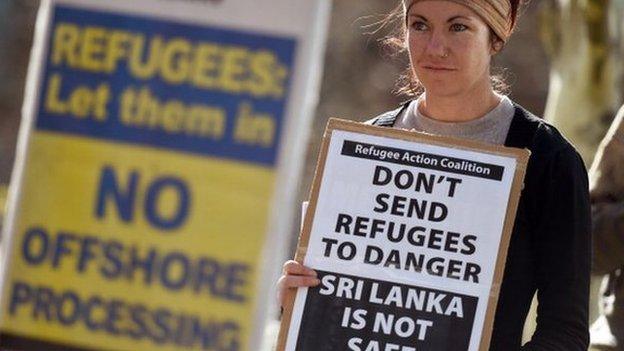Australia's asylum approach: Tough, proud and popular
- Published
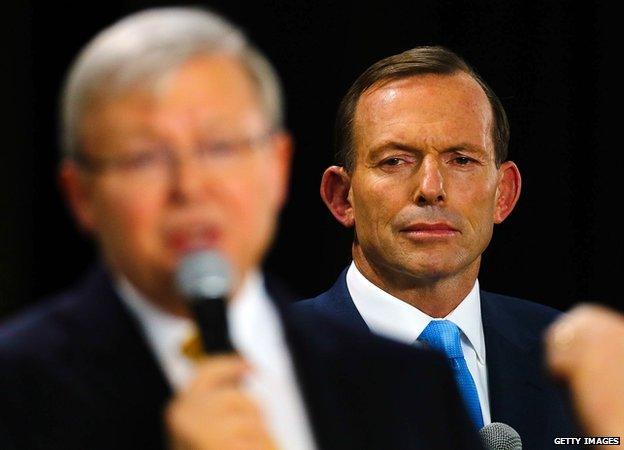
Mr Abbott's hardline asylum seeker policy delivered him election victory against Kevin Rudd in 2013
This week at my local pub in Sydney, I was earwigging a conversation happening at the table next to me.
The news playing on the TV was covering the ongoing row over whether the Australian government had bribed people smugglers with A$31,000 ($24,000; £15,150) to turn their boat back.
Beside me, two elderly ladies were passing comment as they sipped on their white wine spritzers.
"The thing is: Tony Abbott stopped the boats," one said to the other.
"Labor never managed to do that."
And that essentially, is the debate here in a nutshell.
Julia Gillard, the former Prime Minister of Australia, on her country's battles over immigration
Paying bank robbers not to rob banks?
In Australia, there is no real debate.
While its tough policies have been panned internationally by human rights groups - the United Nations calling them cruel, inhumane, contemptuous and degrading - domestically the hardline stance is broadly a popular one.
And that is why the opposition Labor Party has been so mealy-mouthed in its criticism of the alleged paying of people smugglers not to smuggle people, a policy that is possibly illegal.
A bit like paying bank robbers not to rob banks.
Initially, Labor leader Bill Shorten was self-righteous and indignant that the current government might have been using taxpayer money to buy off traffickers.
But once it became clear that Labor might have been operating a similar policy when it was in power, Mr Shorten became much more evasive, external and ambiguous.
Speaking to the BBC's HARDtalk programme this week, former Labor Prime Minister Julia Gillard similarly chose her words carefully.
She gave a politician's answer with no clear denial that Labor wasn't doing the same thing.
You get the impression that perhaps Ms Gillard couldn't say for sure if her government was or it wasn't, such was the dysfunction in the Labor party at the time.
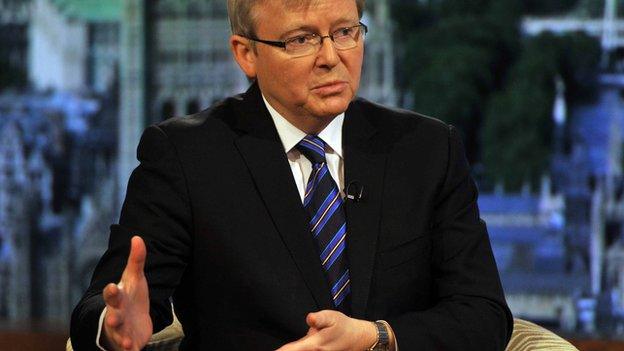
Under Kevin Rudd's leadership, Australia signed a 2013 deal to outsource asylum seekers
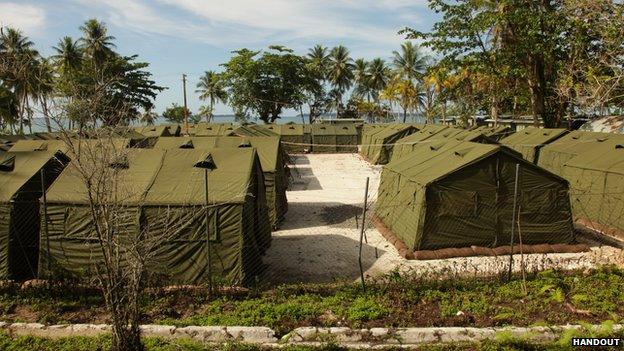
"Guantanamo of the Pacific" - Activists have condemned the detention camps on Papua New Guinea and Nauru
'Stop the boats'
And indeed it was the previous Labor government of Kevin Rudd, eager not to be out-toughed on illegal immigration by Tony Abbott's Liberals, which ramped up the hard-line stance against asylum seekers.
It was Labor that signed a 2013 deal with Papua New Guinea, effectively outsourcing the asylum seeker problem.
Under that deal, Papua New Guinea was paid over $400m (£253,000,000) not only to house the notorious Manus Island detention centre, but also to resettle legitimate refugees destined for Australia.
During the 2013 election which Tony Abbott comfortably won, both major parties could not utter enough the immortal phrase "Stop the Boats."
Mr Abbott has had far more success in doing so. Two years ago, there were thousands of people trying to reach Australia's shores by boat.
Manus Island: Australia's Guantanamo?
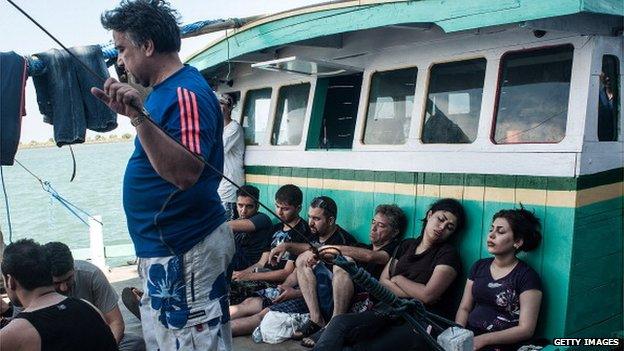
Asylum seekers are seen resting on a boat in Bali, Indonesia.
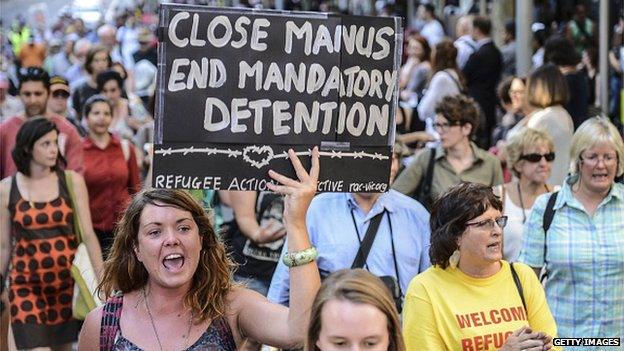
While many Australians oppose the treatment of asylum seekers, there are more who back government stance
Today, the number attempting the journey has been cut to virtually zero.
The Australian government points out that it has also cut to zero the number of people drowning at sea, which is true, at least off Australia's coasts.
But there is a huge amount of politics being played out around the debate.
While polls show that when asked what are the main issues that concern them, voters rated asylum seekers pretty low behind things like education, the economy and health.
But when asked if they'd back a tough stance on asylum seekers, the government broadly has public support.
Sure, there are many people in Australia who are appalled by the government actions.
But not the majority.
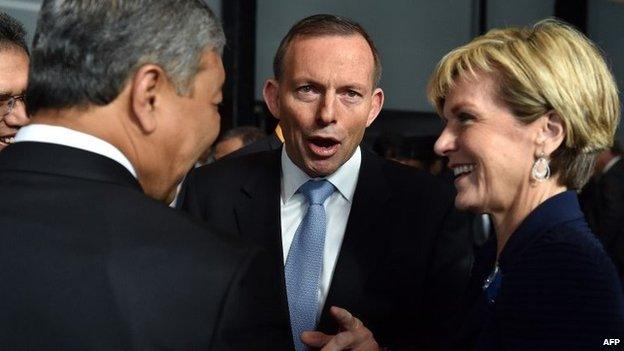
Australia remains outspoken about its tough approach towards asylum seekers
The only party that has been unambiguously critical of the treatment of asylum seekers is the Green Party, external, which only has one MP and 10 Senators.
The two big parties, the Liberals and Labor, seem terrified of appearing weak on asylum seekers.
Prime Minister Tony Abbott has repeatedly said that Europe should learn from Australia on how to tackle the migrant crisis in the Mediterranean.
But there are huge differences.
Firstly, the scale of the problem does not compare.
Even at its peak in 2013, the number of people arriving by boat in Australia was just over 20,000.
More than 100,000 migrants arrived on Europe's shores in the last five months.
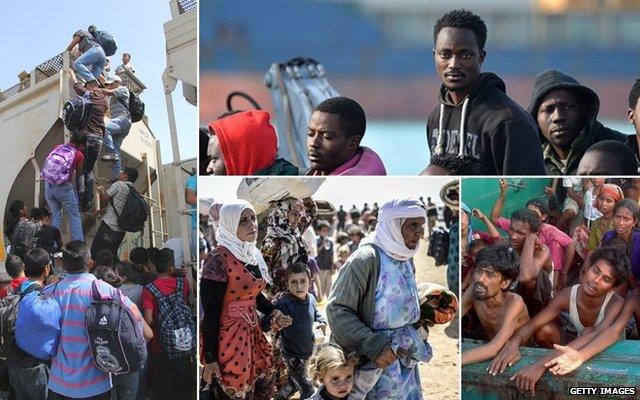
Mediterranean migrants: Drawing parallels with Australia's asylum seekers?
If Europe was going to have offshore detention camps similar to those operated by Australia, they'd have to be massive.
And Greece and Italy are far easier to reach than Australia.
The distances involved are far smaller and the seas far less treacherous.
The boat carrying 65 asylum seekers that Australian officials allegedly paid to turn back, was trying to reach New Zealand from Indonesia.
An unimaginably awful journey of around 7,000 km.
People smugglers operating in Europe are making millions. So it would take some big bribes to pay them off.
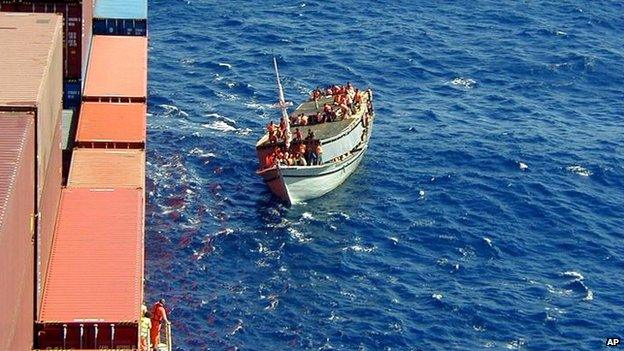
Many asylum seekers make the 'unimaginably awful' journey on rough seas
But despite the criticism, Australia thinks it should export its asylum seeker policies to the world.
For the government, they've been a huge success and are something to be proud of, not shy away from.
You can bet that when the Australian general election, external rolls around next year, most parties will again be talking tough on asylum seekers.
So is Australia likely to change its stance?
In the words of Prime Minister Tony Abbott: "Nope, Nope, Nope., external"
- Published17 June 2015
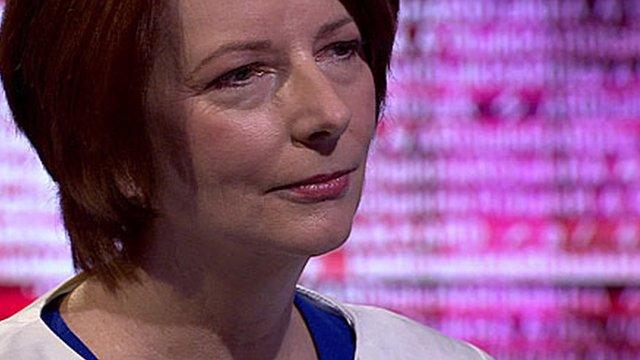
- Published12 June 2015
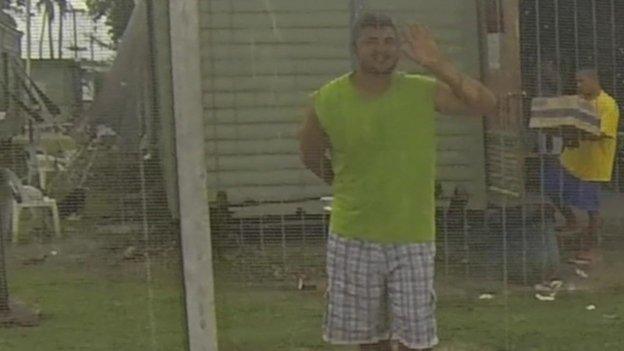
- Published12 June 2015
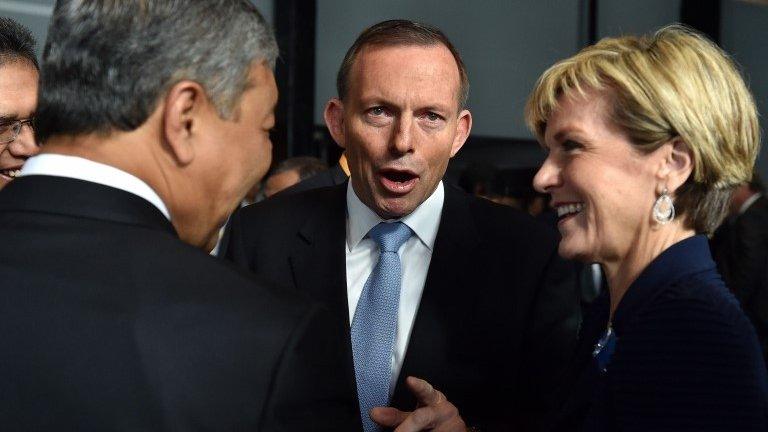
- Published31 October 2017
